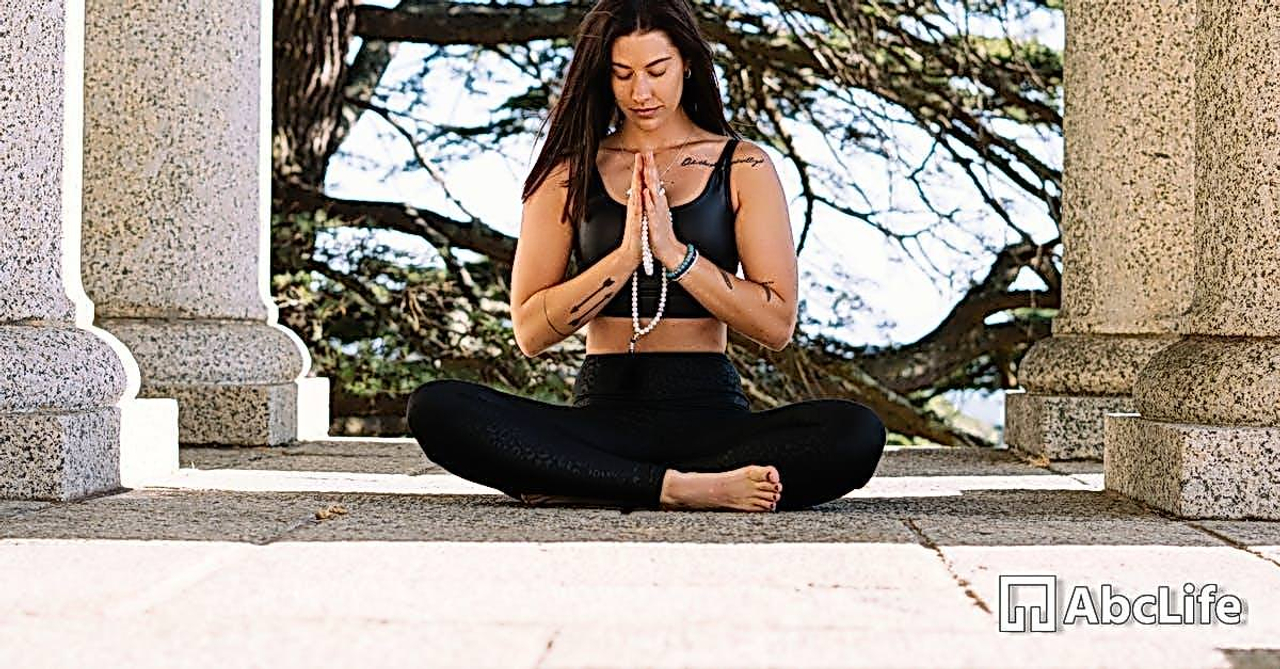When you're overwhelmed, anxious, or stressed, it can be difficult to concentrate on anything else. Fortunately, there are several natural remedies that can help you effectively manage these conditions. There are numerous natural ways to relieve stress and anxiety symptoms, ranging from exercise and relaxation techniques to herbal supplements and mindfulness practices. In this article, we'll look at seven natural remedies that you can try right now to help you effectively manage your stress and anxiety levels.
Exercise for stress relief

Exercise is one of the most effective stress relievers. Physical activity not only improves your physical health, but it also improves your mental health. Exercise increases the production of endorphins, the feel-good neurotransmitters in your brain. These endorphins alleviate stress, anxiety, and depression while also improving your mood.
Depending on your preferences and physical capabilities, there are various types of exercise that can help you reduce stress. Running, swimming, and cycling are excellent stress-reduction exercises because they increase oxygen flow to the brain, reduce muscle tension, and clear your mind. Resistance training, such as weightlifting or push-ups, can also help reduce stress by releasing pent-up energy and producing endorphins. Yoga, Pilates, and tai chi are also popular forms of exercise that emphasize deep breathing, meditation, and mindfulness. These practices promote relaxation by lowering cortisol levels, which are stress hormones.
Overall, incorporate exercise into your daily routine to effectively manage stress and anxiety. Even a few minutes of physical activity can improve your mental health and well-being.
Meditation and mindfulness practices

Meditation is one of the most effective natural remedies for stress and anxiety. For thousands of years, this ancient practice has been used to quiet the mind and promote relaxation. You can calm your nervous system and reduce feelings of stress and anxiety by focusing on your breath and letting go of thoughts as they arise.
Mindfulness practices are similar to meditation in that they involve bringing awareness to the present moment. This can be accomplished by paying attention to your body's sensations, observing your thoughts without judgment, or simply noticing the sights and sounds around you. You can develop a greater sense of calm and clarity, as well as reduce the impact of stress on your body and mind, by cultivating a state of mindfulness.
Meditation and mindfulness practices have both been shown to have numerous health benefits, including the reduction of anxiety and depression symptoms, improved focus and attention, and the promotion of emotional well-being. Incorporating these practices into your daily routine can be an effective way to reduce stress and achieve greater peace and balance in your life.
Herbal Supplements for Anxiety
Anxiety is a natural reaction to stress, but when it becomes excessive, it can disrupt daily activities and negatively impact mental and physical health. While pharmaceutical treatments for anxiety are available, many people prefer natural remedies to manage their symptoms. Herbal supplements, which have been used for centuries to promote relaxation and reduce stress, are one of the most popular natural remedies for anxiety.
Kava is a well-known herbal supplement for anxiety. According to research, kava extracts can effectively reduce anxiety symptoms such as restlessness and tension without causing any negative side effects. Passionflower, which has a calming effect on the nervous system and can help manage mild to moderate anxiety symptoms, is another popular option.
Other herbal supplements for anxiety include valerian root, which can improve sleep quality and alleviate anxiety-related symptoms, and chamomile, which has a calming effect on the mind and body and can alleviate anxiety and depression symptoms. Herbal supplements, on the other hand, can interact with prescription medications and cause side effects, so it's critical to consult with a healthcare provider before taking any supplements.
Aromatherapy for Stress and Anxiety Relief: A Natural Alternative
Stress and anxiety are widespread problems that affect millions of people worldwide. While there are many treatments available, many people are turning to natural remedies such as aromatherapy to help them deal with stress and anxiety. Aromatherapy makes use of essential oils derived from plants to promote relaxation, improve mood, and reduce stress.
Aromatherapy can use a variety of essential oils to combat stress and anxiety. Lavender oil, for example, has been shown to have calming effects on the body and mind. For centuries, it has been used to treat anxiety and promote relaxation. Other essential oils known for their calming properties include bergamot, chamomile, and ylang-ylang.
Aromatherapy can be enjoyed in a variety of ways, including diffusers, candles, bath oils, and even adding a few drops of essential oils to lotion. Aromatherapy can help you maintain a calm and peaceful state of mind amidst the chaos of everyday life by incorporating it into your daily routine.
Overall, aromatherapy is a natural and safe stress and anxiety treatment with numerous proven benefits. Aromatherapy promotes relaxation, reduces stress, and improves overall well-being by harnessing the power of plant extracts.
Yoga for anxiety management
Yoga is one of the most effective natural stress and anxiety treatments. This ancient practice combines physical postures, breathing exercises, and meditation to help you relax, reduce stress, and improve your overall health. Regular yoga practice has been shown in studies to lower cortisol levels and increase GABA, a neurotransmitter that promotes relaxation and reduces stress. Yoga can also improve heart rate variability, which is an important indicator of overall health and stress resilience.
One of the best aspects of yoga is that it is open to anyone, regardless of age, fitness level, or experience. Simple yoga poses such as Child's Pose, Cat-Cow, and Downward Facing Dog can provide immediate stress and anxiety relief. However, it is critical to find a qualified yoga teacher who can safely and effectively guide you through the practice. Yoga can be an invaluable tool for managing anxiety and improving overall well-being with consistent practice.
Breathing techniques for stress relief
Breathing exercises are an easy and effective way to reduce stress and anxiety. Deep breathing can help you slow your heart rate, lower your blood pressure, and relax your mind. Here are a few popular breathing techniques for relaxation:
1. Diaphragmatic Breathing
Diaphragmatic breathing, also known as belly breathing, is a breathing technique that emphasizes breathing deeply into your diaphragm. Sit or lie down comfortably and place one hand on your chest and the other on your belly to practice this technique. Take slow, deep breaths, trying to fill your belly rather than your chest with air. Hold your breath for a few seconds, then slowly exhale. Repeat for a few minutes, or until you feel completely relaxed.
2. Box Breathing
Box breathing is a technique in which you breathe in for four seconds, hold for four seconds, exhale for four seconds, and then hold for four seconds again. Sit or stand in a comfortable position and take slow, deep breaths to practice this technique. Inhale for four counts, then hold your breath for another four counts. Exhale slowly for four counts, then hold your breath for four counts again. Repeat for a few minutes, or until you feel comfortable.
You can reduce stress and anxiety and improve your overall sense of well-being by incorporating these breathing techniques into your daily routine.
Dietary changes to manage stress and anxiety
Dietary changes can play an important role in stress and anxiety management. Certain foods can help to regulate hormone levels and calm the nervous system, while others can cause stress and anxiety. Some dietary changes that can help reduce stress and anxiety are as follows:
1. Increase your intake of complex carbohydrates
Complex carbohydrates, such as whole grains, legumes, and vegetables, can aid in blood sugar regulation and mood stabilization. They also stimulate the production of serotonin, a neurotransmitter important in mood regulation.
2. Consume foods rich in omega-3 fatty acids
Omega-3 fatty acids, which are found in fish, nuts, and seeds, have been shown in studies to help reduce anxiety and depression by reducing inflammation and promoting the production of neurotransmitters that regulate mood and behavior.
3. Limit caffeine and alcohol intake
Caffeine and alcohol can both cause anxiety and disrupt sleep patterns. To help manage stress and anxiety, limit or avoid these substances.
4. Incorporate magnesium-rich foods into your diet
Magnesium is a mineral that can aid in the regulation of neurotransmitters as well as the reduction of stress and anxiety. Magnesium-rich foods include leafy greens, nuts, and whole grains.
5. Stay hydrated
Anxiety and stress symptoms can be exacerbated by dehydration. Drinking enough water can aid in the proper functioning of your body and mind.
You can help reduce stress and anxiety symptoms and promote overall wellness by making these dietary changes.











